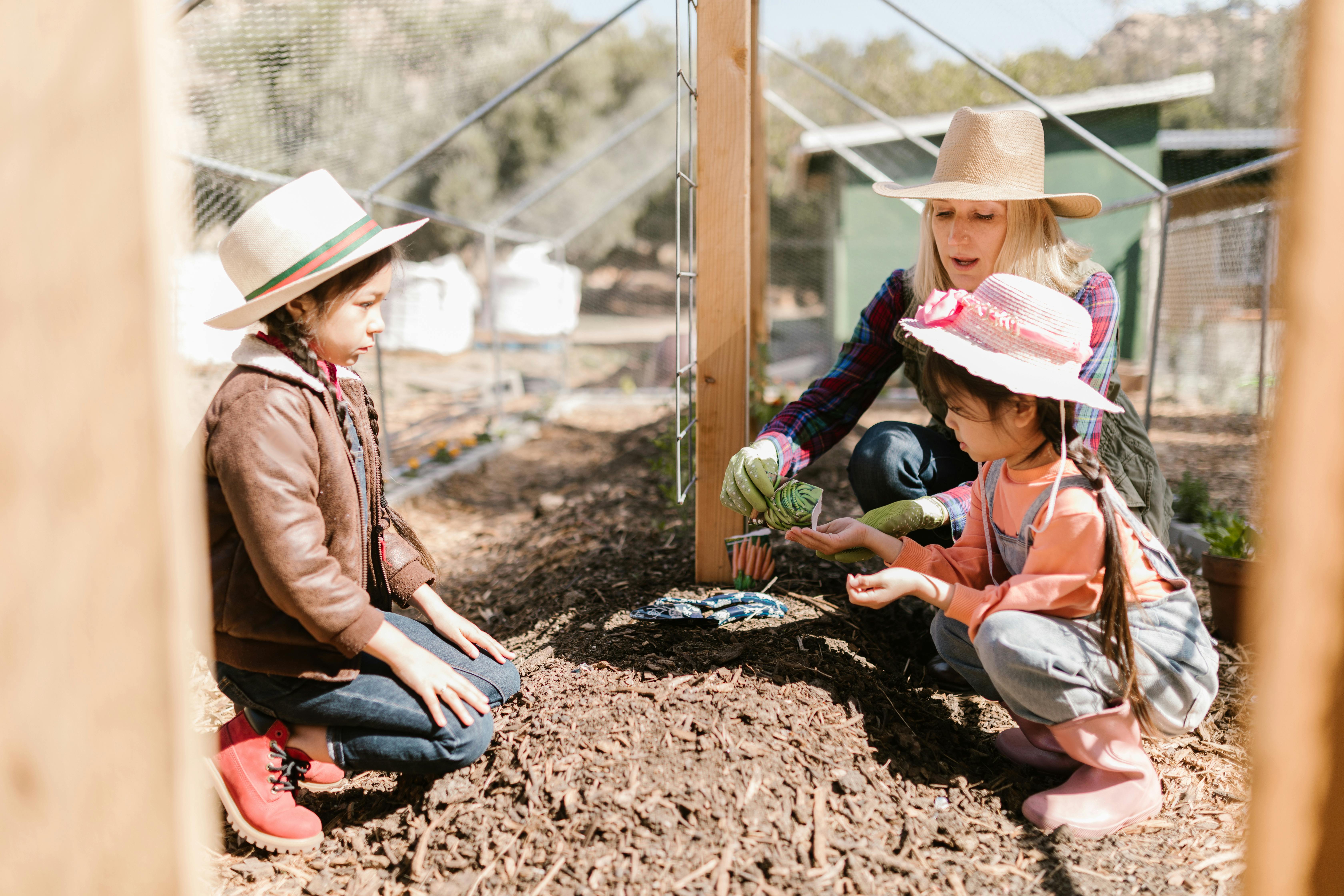6 Reasons to Become an Outdoor Educator

In just ten years, the number of U.S. teens using the internet “almost constantly” has nearly doubled. As it turns out, the increasing use of technology like smartphones and televisions, plus a growing exodus from rural areas, is pulling many Americans away from the natural world.
Experts have recently suggested that adults and children should be introduced to nature as a place to have fun, but also care for and conserve—especially because nature is essential to health, economic prosperity, and quality of life for all.
To propel climate repair, getting Americans back outdoors is crucial—and one way to do that is through increased outdoor education.
What is outdoor education?
Outdoor education is a type of environmental education where organized learning happens outside and allows students to interact with the natural environment.
Educators in the outdoors focus on experiential learning where participants actively engage with their surroundings and foster a deeper connection to nature, which can happen in a variety of places:
- Outdoor learning centers
- Field trips to natural parks
- Wilderness programs and expeditions
- Environmental education programs
- Adventure schools and adventure-based learning activities
- Team-building exercises
- Outdoor recreational pursuits
- Community organization
With so many kinds of “outdoor classrooms,” a typical day can look like teaching school-age children how to identify different types of plant species at a nature preserve, leading a group of tourists through the history of a nature park, or teaching enthusiasts how to leave no trace when they participate in outdoor recreation like hiking, camping, or backpacking.
Ultimately, the global outdoor ed market size is estimated to increase from $538.6 billion in 2021 to $893.4 billion in 2028. There is a growing demand for professionals who can imbue in their students—regardless of age—a renewed sense of responsibility for the environment, fostering a deeper appreciation of the natural world and promoting environmental awareness and sustainability.
6 Reasons to Become an Outdoor Educator
There are all sorts of jobs for people who love the outdoors, but there is something really unique about teaching in an outdoor environment. We’ve compiled six of the most important reasons why you should consider a role as an outdoor educator.
#1: Meaningful work
Educators in the outdoors make a positive impact on people and the planet by connecting people with nature.
Studies show an association between exposure to nature and health, including improved cognitive function, brain activity, blood pressure, mental health, and sleep. By connecting people with nature, you are helping protect the planet and engaging in climate repair efforts—such as fostering environmental awareness and promoting sustainable living.
#2: Your own personal growth
Imagine a job where you can develop a deeper appreciation for nature while gaining a stronger connection with the environment—and get paid for it. Enhancing your outdoor wilderness skills can help build self-confidence, ease stress, and improve your health.
In many roles, you simultaneously gain a deeper knowledge of ecology and environmental issues alongside your students.
#3: You get to teach in a dynamic environment
In the outdoor education industry, the sky's the limit — literally and figuratively. Your settings can be as diverse as you want them to be: forests, along rivers, in parks, at farms — and even on city streets. This means that outdoor educators can work in an environment that supports their career goals and reaches an intersectional audience.
#4: Work that’s fully experiential for you and those you’re teaching
Many people benefit, even crave, hands-on learning when trying to develop new skills and absorb information. Outdoor educators are often no different than their students!
When you can focus on hands-on and experiential learning, those immersive experiences foster deeper understanding, critical thinking, and problem-solving skills—which keeps your role fresh, dynamic, and engaging.
#5: You can work in a wide range of career paths
Some outdoor educators work with traditional K-12 schools but many don’t. As the industry grows, so does the opportunity to get involved with innovative initiatives. For example:
- Nature center staff
- Adventure and safety leaders
- Environmental nonprofit workers
- Outdoor wellness instructors
- Ecological fieldworkers and research staff
A career as an outdoor educator can catapult you into leadership roles, environmental consulting, curriculum development, or field research — and since it has so many applications, you can explore out-of-the-box ways to put your work to good use.
#6: Work-life balance
Learning outside the classroom is an excellent way for anyone to spend their time, but teaching outside the classroom exponentially increases your health, career satisfaction, and sense of adventure, while directly engaging with climate repair. You’re not alone if you’re looking for a welcome change from traditional office and school settings; your students will be looking for it, too.
Get an outdoor education degree at Bard
To mitigate the consequences of climate change, we must engage a rising generation now. Bard’s Master’s in Environmental Education is one of the few outdoor education degrees in existence, let alone in the U.S., that can help you achieve this. Bard’s Graduate Programs in Sustainability differ from any other environmental education degree because sustainability is baked into the foundation, not bolted on as an afterthought.
Located in the Hudson Valley, the MEd in Environmental Education program sits in a diverse ecosystem providing ample outdoor education opportunities. During their time at Bard, in addition to their courses, students also complete a 4-6 month professional internship and independent capstone project—all while in proximity to the Catskills, Hudson River, and Appalachian Trail.
Interested in learning more? Download the M.Ed Guide today.

-452362-edited.jpg?width=365&name=Webp.net-compress-image%20(1)-452362-edited.jpg)


